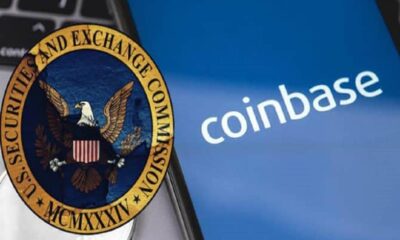Regulation
Adam Cochran Critiques SEC’s Case

[ad_1]
The U.S. Securities and Exchange Commission (SEC) recently issued a Wells notice to Uniswap Labs, indicating a potential enforcement action. This action has triggered widespread debate in the cryptocurrency community, mainly concerning the SEC’s position regarding similar matters in the past. Adam Cochran of Cinneamhain Ventures, as a result, critiqued the SEC’s approach over the years, identifying discrepancies.
Historical Context of SEC Decisions
The analysis of Cochran is based on No-Action Letters issued by the SEC from as early as the year 1979 to the late 1990s. These documents have historically defined the position of the regulatory body as to what is an exchange.
Entities that were establishing systems for electronically routing and matching trades, for instance, were not considered as exchanges when the actual execution was done on a different system. The importance of this feature is that it differentiates the technical function of trade matching from the financial function of trading and settlement of those traded.
1/33
To highlight, just how outlandish the SEC proposed case against Uniswap is, it seemed worthwhile to look at how the SEC is contradicting years of its own policy guidelines across multiple major points.
— Adam Cochran (adamscochran.eth) (@adamscochran) April 13, 2024
Cochran, in addition, points out situations where the SEC distinguished between interfaces that enabled the presentation and transmission of trade information and the platforms that finalized the trades. Moreover, under old guidance from the SEC, a mere facilitation of a meeting between the buyers and sellers would not be considered an exchange itself, in conditions where the actual settlements occur somewhere else.
Uniswap’s Operational Model
Cochran applies these historical precedents to Uniswap and argues that the decentralized exchange operates on the same principle. The frontend interface of Uniswap Labs is developed, while the trades are executed autonomously through smart contracts on the Ethereum blockchain. This divergence, according to Cochran, is consistent with the earlier SEC’s interpretations, and it makes the current response to Uniswap questionable.
Uniswap allows users to swap cryptocurrencies directly without any third party, and smart contracts facilitate transactions. These contracts are independent of the front end developed by Uniswap Labs, suggesting a distinction between the interface provided by Uniswap and the actual exchange mechanism.
Implications for Decentralized Exchanges
The debate on Uniswap and the notice by the SEC is a symbol of wider regulatory issues affecting decentralized finance platforms. Decentralized exchanges (DEXs) such as Uniswap are fundamentally dissimilar to traditional financial exchanges in this regard due to the decentralization of the trade control and completion. This model is in contrast with the regulatory structures that have been built around central entities that perform the functions of exchange operations.
The problem with this argument, in essence, is that the SEC’s previous decisions also justify decentralized platforms, where the technology allows trades to be conducted differently from traditional exchange definitions. The analysis posits that taking enforcement action against these platforms without defined current regulatory guidance could present innovation and legal stability risks in the crypto market.
Read Also: Solana Founder Shares Take On SWQoS Model Confusion
The presented content may include the personal opinion of the author and is subject to market condition. Do your market research before investing in cryptocurrencies. The author or the publication does not hold any responsibility for your personal financial loss.
[ad_2]
Source link










✓ Share: